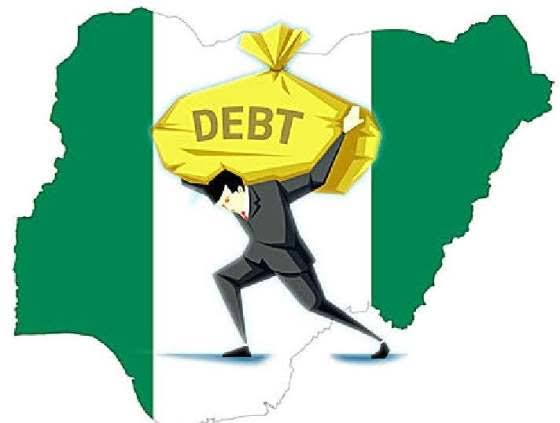
Fitch Ratings has projected Nigeria’s external debt service to rise to $5.2 billion in 2025, underscoring increasing pressure on public finances despite ongoing economic reforms.
The credit rating agency revealed this in a commentary published Friday, where it upgraded Nigeria’s long-term foreign-currency issuer default rating from ‘B-’ to ‘B’, with a stable outlook.
According to Fitch, the government’s external debt service will grow from $4.7 billion in 2024 to $5.2 billion in 2025. This figure includes $4.5 billion in amortisation payments and a $1.1 billion Eurobond repayment scheduled for November.
“Government external debt service is moderate but expected to rise... and fall to $3.5 billion in 2026,” Fitch noted, adding that the outlook reflects continued fiscal strain.
The agency also pointed to a slight delay in the payment of a Eurobond coupon due March 28, 2025, as an indication of ongoing public finance management issues.
While external debt service remains within manageable limits, Fitch highlighted major concerns, including high interest costs, poor revenue generation, and limited fiscal flexibility.
It further estimated that Nigeria’s general government debt will hover around 51% of GDP in both 2025 and 2026, but warned that a significant share of revenue will be swallowed by interest payments.
It stated, “We expect general government revenue-to-GDP to rise but to remain structurally low (averaging 13.3 per cent in 2025–2026), largely accounting for a high general government interest/revenue ratio, above 30 per cent, with federal government interest/revenue ratio of nearly 50 per cent.”
The agency observed that Nigeria’s gross reserves rose to $41bn at the end of 2024, before declining to $38bn due to debt service payments.
Despite this, Fitch expects the country’s reserves to average five months of current external payments over the medium term, above the median for similarly rated economies.
It added that recent policy reforms had contributed to increased foreign exchange inflows and better monetary stability, with inflation projected to average 22 per cent in 2025.
Fitch stated, “Net official FX inflows through the CBN and autonomous sources rose by about 89 per cent in Q4 2024. We expect continued formalisation of FX activity to support the exchange rate, although we anticipate modest depreciation in the short term.”
Fitch praised the Nigerian government's dedication to economic reforms, citing key measures such as the removal of fuel subsidies, exchange rate liberalisation, and tighter monetary policy.
According to the agency, these reforms have enhanced policy credibility and boosted the country's resilience to external shocks.
Nonetheless, Fitch cautioned that Nigeria’s fiscal and external positions remain vulnerable, especially in the event of declining oil prices or delays in policy execution.
This latest review follows earlier concerns from JP Morgan, which warned that sustained low oil prices could tip Nigeria’s current account into a deficit and potentially drive the naira past N1,700 to the dollar.
Despite the risks, Fitch affirmed a stable outlook for Nigeria, noting that the reform agenda is beginning to deliver positive outcomes.








